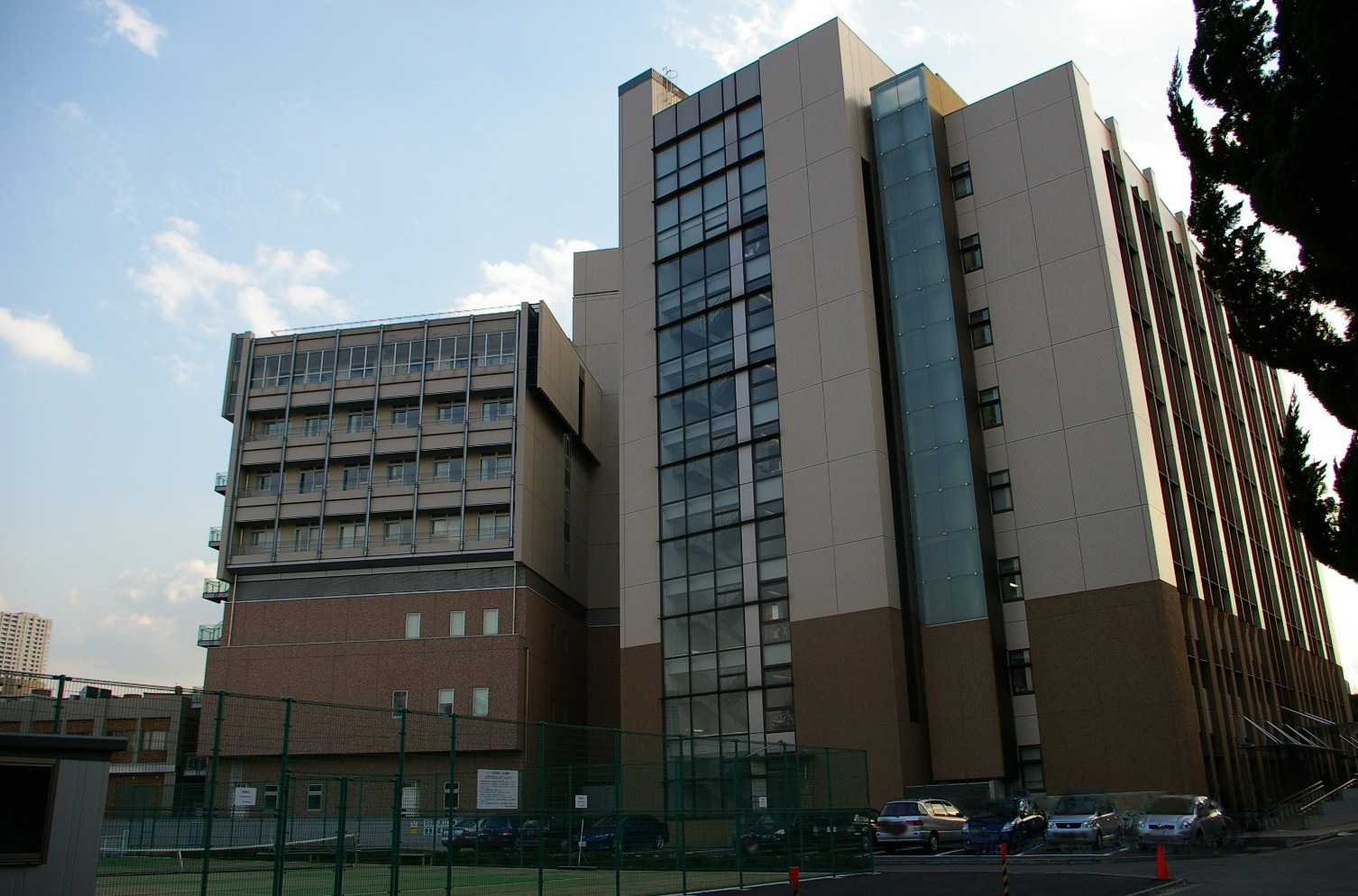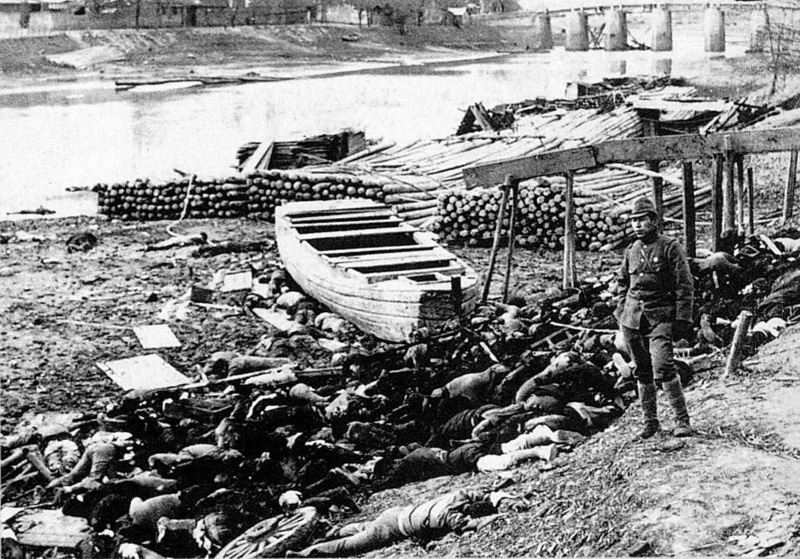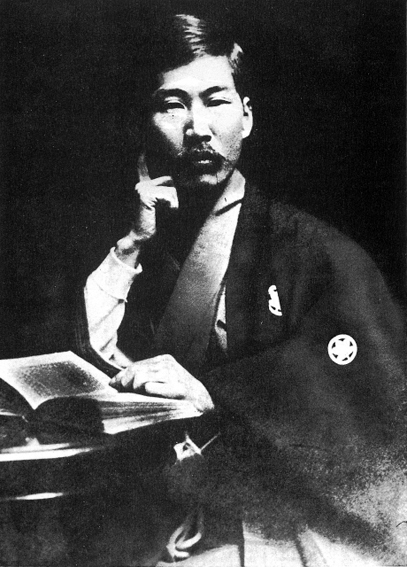|
Saburō Ienaga
was a Japanese historian. In 1953, the Japanese Ministry of Education published a textbook by Ienaga, but censored what they said were factual errors and matters of opinion, regarding Japanese war crimes. Ienaga undertook a series of lawsuits against the Ministry for violation of his freedom of speech. He was nominated for the Nobel Peace Prize in 1999 and 2001 by Noam Chomsky among others. He also recorded the history of the Japanese resistance in World War II in his book ''The Pacific War, 1931–1945''. Life Ienaga was born in Nagoya. He entered Tokyo's Kudan High School in 1926, and graduated from the University of Tokyo in 1937. Following his graduation, he served as a professor at Tokyo University of Education (東京教育大, today's University of Tsukuba) from 1949 to 1977, and at Chuo University from 1977 to 1984. In 1984, he was awarded the Japan Academy Prize and became professor emeritus at Tokyo University of Education. Background of the lawsuit In April 1947, ... [...More Info...] [...Related Items...] OR: [Wikipedia] [Google] [Baidu] |
Ministry Of Education, Culture, Sports, Science And Technology
The , also known as MEXT or Monka-shō, is one of the eleven Ministries of Japan that composes part of the executive branch of the Government of Japan. Its goal is to improve the development of Japan in relation with the international community. The ministry is responsible for funding research under its jurisdiction, some of which includes: children's health in relation to home environment, delta-sigma modulations utilizing graphs, gender equality in sciences, neutrino detection which contributes to the study of supernovas around the world, and other general research for the future. History The Meiji government created the first Ministry of Education in 1871. In January 2001, the former Ministry of Education, Science, Sports and Culture and the former merged to become the present MEXT. Organization The Ministry of Education, Culture, Sports, Science and Technology currently is led by the Minister of Education, Culture, Sports, Science and Technology. Under that position i ... [...More Info...] [...Related Items...] OR: [Wikipedia] [Google] [Baidu] |
Nanking Massacre
The Nanjing Massacre (, ja, 南京大虐殺, Nankin Daigyakusatsu) or the Rape of Nanjing (formerly romanized as ''Nanking'') was the mass murder of Chinese civilians in Nanjing, the capital of the Republic of China, immediately after the Battle of Nanking in the Second Sino-Japanese War, by the Imperial Japanese Army. Beginning on December 13, 1937, the massacre lasted six weeks. The perpetrators also committed other war crimes such as mass rape, looting, and arson. The massacre was one of the worst atrocities committed during World War II. The Japanese Army had pushed quickly through China after capturing Shanghai in November 1937. By early December, it was on the outskirts of Nanjing. The speed of the army's advance was likely due to commanders allowing looting and rape along the way. As the Japanese approached, the Chinese army withdrew the bulk of its forces since Nanjing was not a defensible position. The civilian government of Nanjing fled, leaving the city under the ... [...More Info...] [...Related Items...] OR: [Wikipedia] [Google] [Baidu] |
Laureates Of The Imperial Prize
In English, the word laureate has come to signify eminence or association with literary awards or military glory. It is also used for recipients of the Nobel Prize, the Gandhi Peace Award, the Student Peace Prize, and for former music directors of orchestras who retain some level of involvement. History In ancient Greece, the laurel (''Laurus nobilis'') was sacred to Apollo, and as such, sprigs of it were fashioned into a crown or wreath of honor for poets and heroes. This symbolism has been widespread ever since. "Laureate letters" in old times meant the dispatches announcing a victory; and the epithet was given, even officially (e.g. to John Skelton) by universities, to distinguished poets. The name of "bacca-laureate" for a bachelor's degree shows a confusion with a supposed etymology from Latin bacca lauri (the laurel berry), which, though incorrect, involves the same idea. From the more general use of the term "poet laureate" arose its restriction in England to the of ... [...More Info...] [...Related Items...] OR: [Wikipedia] [Google] [Baidu] |
People From Nagoya
A person ( : people) is a being that has certain capacities or attributes such as reason, morality, consciousness or self-consciousness, and being a part of a culturally established form of social relations such as kinship, ownership of property, or legal responsibility. The defining features of personhood and, consequently, what makes a person count as a person, differ widely among cultures and contexts. In addition to the question of personhood, of what makes a being count as a person to begin with, there are further questions about personal identity and self: both about what makes any particular person that particular person instead of another, and about what makes a person at one time the same person as they were or will be at another time despite any intervening changes. The plural form "people" is often used to refer to an entire nation or ethnic group (as in "a people"), and this was the original meaning of the word; it subsequently acquired its use as a plural form of per ... [...More Info...] [...Related Items...] OR: [Wikipedia] [Google] [Baidu] |
University Of Tsukuba Faculty
A university () is an institution of higher (or tertiary) education and research which awards academic degrees in several academic disciplines. Universities typically offer both undergraduate and postgraduate programs. In the United States, the designation is reserved for colleges that have a graduate school. The word ''university'' is derived from the Latin ''universitas magistrorum et scholarium'', which roughly means "community of teachers and scholars". The first universities were created in Europe by Catholic Church monks. The University of Bologna (''Università di Bologna''), founded in 1088, is the first university in the sense of: *Being a high degree-awarding institute. *Having independence from the ecclesiastic schools, although conducted by both clergy and non-clergy. *Using the word ''universitas'' (which was coined at its foundation). *Issuing secular and non-secular degrees: grammar, rhetoric, logic, theology, canon law, notarial law.Hunt Janin: "The university ... [...More Info...] [...Related Items...] OR: [Wikipedia] [Google] [Baidu] |
1913 Births
Events January * January 5 – First Balkan War: Battle of Lemnos – Greek admiral Pavlos Kountouriotis forces the Turkish fleet to retreat to its base within the Dardanelles, from which it will not venture for the rest of the war. * January 13 – Edward Carson founds the (first) Ulster Volunteer Force, by unifying several existing loyalist militias to resist home rule for Ireland. * January 23 – 1913 Ottoman coup d'état: Ismail Enver comes to power. * January – Stalin (whose first article using this name is published this month) travels to Vienna to carry out research. Until he leaves on February 16 the city is home simultaneously to him, Hitler, Trotsky and Tito alongside Berg, Freud and Jung and Ludwig and Paul Wittgenstein. February * February 1 – New York City's Grand Central Terminal, having been rebuilt, reopens as the world's largest railroad station. * February 3 – The 16th Amendment to the United S ... [...More Info...] [...Related Items...] OR: [Wikipedia] [Google] [Baidu] |
Japanese Resistance During The Shōwa Period
Political dissidence in the Empire of Japan covers individual Japanese dissidents against the policies of the Empire of Japan. Dissidence in the Meiji and Taishō eras High Treason Incident Shūsui Kōtoku, a Japanese anarchist, was critical of imperialism. He would write ''Imperialism: The Specter of the Twentieth Century'' in 1901. In 1911, twelve people, including Kōtoku, were executed for their involvement in the High Treason Incident, a failed plot to assassinate Emperor Meiji. Also executed for involvement with the plot was Kanno Suga, an anarcho-feminist and former common-law wife of Kōtoku. Fumiko Kaneko and Park Yeol Fumiko Kaneko was a Japanese anarchist who lived in Korea under Japanese rule, Japanese occupied Korea. She, along with a Korean anarchist, Park Yeol, were accused of attempting to procure bombs from a Korean independence group in Shanghai. Both of them were charged with plotting to assassinate members of the Japanese imperial family. The Commoner ... [...More Info...] [...Related Items...] OR: [Wikipedia] [Google] [Baidu] |
Japanese Devils
''Japanese Devils'' (or ''Riben Guizi'' ) is a Japanese documentary about the war crimes committed by the Imperial Japanese Army between 1931 and 1945. The documentary is a series of interviews with 14 Japanese veterans of the Second Sino-Japanese War who recount rape, massacres, bio-experiments, and cannibalism. The accuracy of these interviews is contested by Japanese nationalist critics. Minoru Matsui's inspiration for the film came after one of his original interviewees died. Feeling that it was his last chance to document the stories, he began the process of creating the documentary. Initial support was minimal, with all production companies showing no interest. The film did not gain any traction until it was entered into the Berlin Film Festival. The original title, Riben Guizi, is a Chinese phrase popular in the 1930s and 1940s used to express hatred for Japanese invaders. Controversy The 14 former soldiers interviewed in the film were ex-POWs of China and were su ... [...More Info...] [...Related Items...] OR: [Wikipedia] [Google] [Baidu] |
Tomio Hora
Tomio Hora (洞 富雄, ''Hora Tomio'', (born 14 November 1906 in Higashichikuma District, Nagano Prefecture, modern-day Chikuhoku; died 15 March 2000) was a Japanese historian and Waseda University professor, well known for his pioneering work on the Nanjing Massacre. Education Hora attended middle school at Matsumoto Kukashi High School () and high school at Waseda University High School (). He was a graduate of Waseda University's literature department. He received his Doctor of Letters from Waseda. Nanjing Massacre In 1972, Hora published his seminal ''Nankin Jiken'', in which he refuted revisionist denial of the Nanking Massacre The Nanjing Massacre (, ja, 南京大虐殺, Nankin Daigyakusatsu) or the Rape of Nanjing (formerly romanized as ''Nanking'') was the mass murder of Chinese civilians in Nanjing, the capital of the Republic of China, immediately after the Ba ....Takashi Yoshida. ''The making of the "Rape of Nanking"''. 2006, page 87 The work updated his 1967 ... [...More Info...] [...Related Items...] OR: [Wikipedia] [Google] [Baidu] |
Pacific War
The Pacific War, sometimes called the Asia–Pacific War, was the theater of World War II that was fought in Asia, the Pacific Ocean, the Indian Ocean, and Oceania. It was geographically the largest theater of the war, including the vast Pacific Ocean theater, the South West Pacific theater, the Second Sino-Japanese War, and the Soviet–Japanese War. The Second Sino-Japanese War between the Empire of Japan and the Republic of China had been in progress since 7 July 1937, with hostilities dating back as far as 19 September 1931 with the Japanese invasion of Manchuria. However, it is more widely accepted that the Pacific War itself began on 7 December (8 December Japanese time) 1941, when the Japanese simultaneously invaded Thailand, attacked the British colonies of Malaya, Singapore, and Hong Kong as well as the United States military and naval bases in Hawaii, Wake Island, Guam, and the Philippines. The Pacific War saw the Allies pitted against Japan, the latter ai ... [...More Info...] [...Related Items...] OR: [Wikipedia] [Google] [Baidu] |



_1938.jpg)


